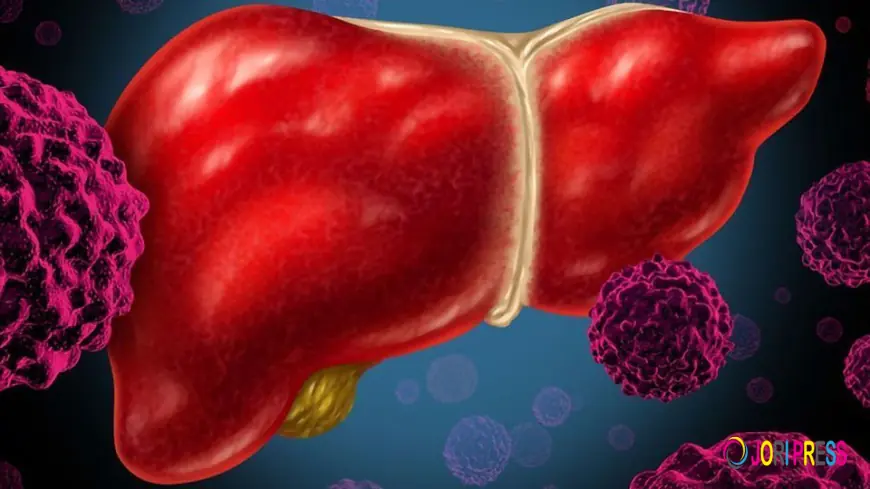Understanding Immunotherapy for Bone Cancer: A Comprehensive Guide

Bone cancer is a rare but serious condition that affects thousands of individuals each year. As research in oncology continues to evolve, innovative treatment options are transforming how doctors approach cancer care. Among these, immunotherapy for bone cancer has emerged as a promising and targeted method that leverages the body's own immune system to combat cancerous cells. This guide explores everything you need to know about immunotherapy for bone cancer, including how it works, types, benefits, challenges, and future directions.
What Is Bone Cancer?
Bone cancer refers to malignant tumors that originate in the bones. It can either be primary bone cancer, which starts in the bone itself, or secondary (metastatic) bone cancer, which spreads to the bone from another part of the body. Primary bone cancers include osteosarcoma, chondrosarcoma, and Ewing sarcoma.
While traditional treatments like surgery, chemotherapy, and radiation remain standard, modern advancements have introduced immunotherapy for bone cancer as a potential life-saving therapy.
What Is Immunotherapy?
Immunotherapy is a form of treatment that enhances the immune system's ability to identify and destroy cancer cells. Unlike chemotherapy, which directly targets cancer cells (and often affects healthy ones too), immunotherapy works by strengthening the body’s natural defenses.
In the context of immunotherapy for bone cancer, researchers aim to stimulate or restore immune function so that it can recognize bone cancer cells as threats and eliminate them more efficiently.
Types of Immunotherapy for Bone Cancer
Several forms of immunotherapy for bone cancer are being explored and implemented, each targeting cancer through different biological pathways.
1. Checkpoint Inhibitors
Checkpoint inhibitors are drugs that block proteins used by cancer cells to avoid immune system detection. These inhibitors allow immune cells to recognize and attack cancer more effectively. This approach has shown promise in several cancers and is now being studied in immunotherapy for bone cancer.
2. Monoclonal Antibodies
Monoclonal antibodies are lab-made molecules engineered to target specific antigens on cancer cells. In immunotherapy for bone cancer, these antibodies can be used to deliver toxins directly to tumor cells or flag them for destruction by immune cells.
3. Cancer Vaccines
Cancer vaccines aim to stimulate the immune system to target specific cancer-associated proteins. Though still under investigation, such vaccines could potentially play a role in immunotherapy for bone cancer by training the body to recognize bone cancer cells.
4. Adoptive Cell Therapy
This method involves extracting immune cells from the patient, modifying or expanding them in a laboratory, and then reinfusing them. Techniques like CAR T-cell therapy are being studied as advanced forms of immunotherapy for bone cancer.
How Does Immunotherapy for Bone Cancer Work?
To understand how immunotherapy for bone cancer operates, it’s essential to grasp the immune system’s basic functions. The immune system constantly patrols the body to detect abnormal cells. However, cancer can develop mechanisms to evade this detection.
Immunotherapy for bone cancer breaks through these evasion tactics by either removing the "brakes" on immune cells or enhancing their ability to detect cancer signals. This can lead to improved tumor recognition and destruction.
Candidates for Immunotherapy for Bone Cancer
Not every bone cancer patient will be eligible for immunotherapy. The suitability depends on several factors:
- Type and stage of bone cancer
- Genetic mutations present in the tumor
- Overall health and immune status of the patient
Molecular testing may help oncologists determine whether immunotherapy for bone cancer would be effective in a specific case.
Benefits of Immunotherapy for Bone Cancer
There are many reasons why immunotherapy for bone cancer is gaining attention among oncologists and researchers.
1. Targeted Treatment
Unlike chemotherapy, which affects both cancerous and healthy cells, immunotherapy for bone cancer focuses on cancer cells, reducing the risk of severe side effects.
2. Long-Term Protection
Some patients who respond well to immunotherapy develop a long-lasting immune memory. This means their body continues to attack cancer cells long after treatment ends, offering sustained remission.
3. Combining with Other Treatments
Immunotherapy for bone cancer can be combined with chemotherapy or radiation to create a more comprehensive treatment plan and improve outcomes.
Challenges and Limitations
While immunotherapy for bone cancer is promising, it does come with its set of challenges:
- Response Variability: Not all patients respond equally. Some may see dramatic improvements, while others show no benefit.
- Autoimmune Reactions: By boosting immune activity, there’s a risk that the immune system might attack healthy tissue.
- Cost and Accessibility: Immunotherapy for bone cancer can be expensive and may not be covered by all insurance providers.
Despite these hurdles, ongoing trials continue to refine techniques and reduce risks.
Clinical Trials and Research
Numerous clinical trials are underway globally, testing the safety and effectiveness of immunotherapy for bone cancer. These trials aim to:
- Identify genetic biomarkers that predict success
- Discover new immune pathways
- Evaluate combination strategies with traditional therapies
Participation in clinical trials may offer patients early access to cutting-edge immunotherapy for bone cancer treatments.
Success Stories
There have been real-life cases where immunotherapy for bone cancer has significantly improved outcomes. In some instances, patients with aggressive or relapsed bone cancer have achieved remission, thanks to experimental immunotherapy approaches.
These encouraging stories highlight the transformative potential of immunotherapy for bone cancer and support further investment in research.
Side Effects of Immunotherapy for Bone Cancer
Like any medical treatment, immunotherapy for bone cancer can have side effects. Some of the most common include:
- Fatigue
- Skin rashes
- Flu-like symptoms
- Digestive issues
More serious but rare side effects include inflammation of organs like the lungs (pneumonitis) or liver (hepatitis). It's crucial to monitor patients closely and manage side effects promptly.
Cost Considerations
One of the biggest concerns about immunotherapy for bone cancer is its cost. Depending on the treatment plan, expenses can run into tens or hundreds of thousands of dollars. This includes:
- Drug costs
- Lab work
- Infusion center fees
- Hospital stays (if needed)
Patients are encouraged to explore insurance options, grants, or assistance programs that can help offset the cost of immunotherapy for bone cancer.
Role of Personalized Medicine
The future of immunotherapy for bone cancer lies in personalization. By studying the genetic makeup of tumors, doctors can tailor treatments to an individual’s unique biology. This not only increases effectiveness but also minimizes harmful side effects.
Molecular profiling, biomarker testing, and genome sequencing are playing crucial roles in developing personalized immunotherapy for bone cancer strategies.
Immunotherapy for Pediatric Bone Cancer
Children diagnosed with bone cancer, particularly Ewing sarcoma or osteosarcoma, often undergo intense treatment. While chemotherapy remains the standard, researchers are exploring how immunotherapy for bone cancer can be safely integrated into pediatric protocols.
Some pediatric trials are investigating how the child’s immune system reacts to immunotherapy and whether it can be used earlier in the treatment timeline.
Future Outlook
The future of immunotherapy for bone cancer looks promising. As science advances and clinical trials progress, we can expect:
- More refined immune-targeting drugs
- Decreased side effects
- Increased survival rates
- Wider availability of treatment
Investment in immuno-oncology will likely continue to push the boundaries of what's possible in cancer care.
FAQs: Immunotherapy for Bone Cancer
1. Is immunotherapy approved for bone cancer?
Currently, immunotherapy for bone cancer is still largely experimental, but some therapies are being used off-label or in clinical trials.
2. Can immunotherapy replace chemotherapy for bone cancer?
In some cases, it may complement or even replace chemotherapy, especially when patients are resistant to standard treatment.
3. How long does immunotherapy treatment last?
Duration varies by treatment type and response. Some patients receive it for several months; others may continue longer.
4. Is immunotherapy painful?
The administration of immunotherapy for bone cancer is usually through IV and not painful, though some side effects may cause discomfort.
5. Can I get immunotherapy at a local hospital?
Major cancer centers and hospitals participating in clinical trials are most likely to offer immunotherapy for bone cancer. Availability may differ by location.
Conclusion
Immunotherapy for bone cancer is a game-changing advancement that holds significant promise for improving outcomes in patients facing this rare and challenging disease. From checkpoint inhibitors to cellular therapies, the evolution of immuno-oncology is reshaping the treatment landscape. While not without risks or limitations, the potential rewards make it a compelling option for many.
As ongoing trials expand our understanding and improve application methods, immunotherapy for bone cancer is expected to become more accessible, effective, and tailored to individual patient needs. For those exploring alternatives to traditional cancer treatments, this approach offers renewed hope for healing and survival.
Whether you're a patient, caregiver, or healthcare provider, staying informed about immunotherapy for bone cancer ensures you are part of a medical journey grounded in innovation, research, and compassion.
What's Your Reaction?
 Like
0
Like
0
 Dislike
0
Dislike
0
 Love
0
Love
0
 Funny
0
Funny
0
 Angry
0
Angry
0
 Sad
0
Sad
0
 Wow
0
Wow
0
















































